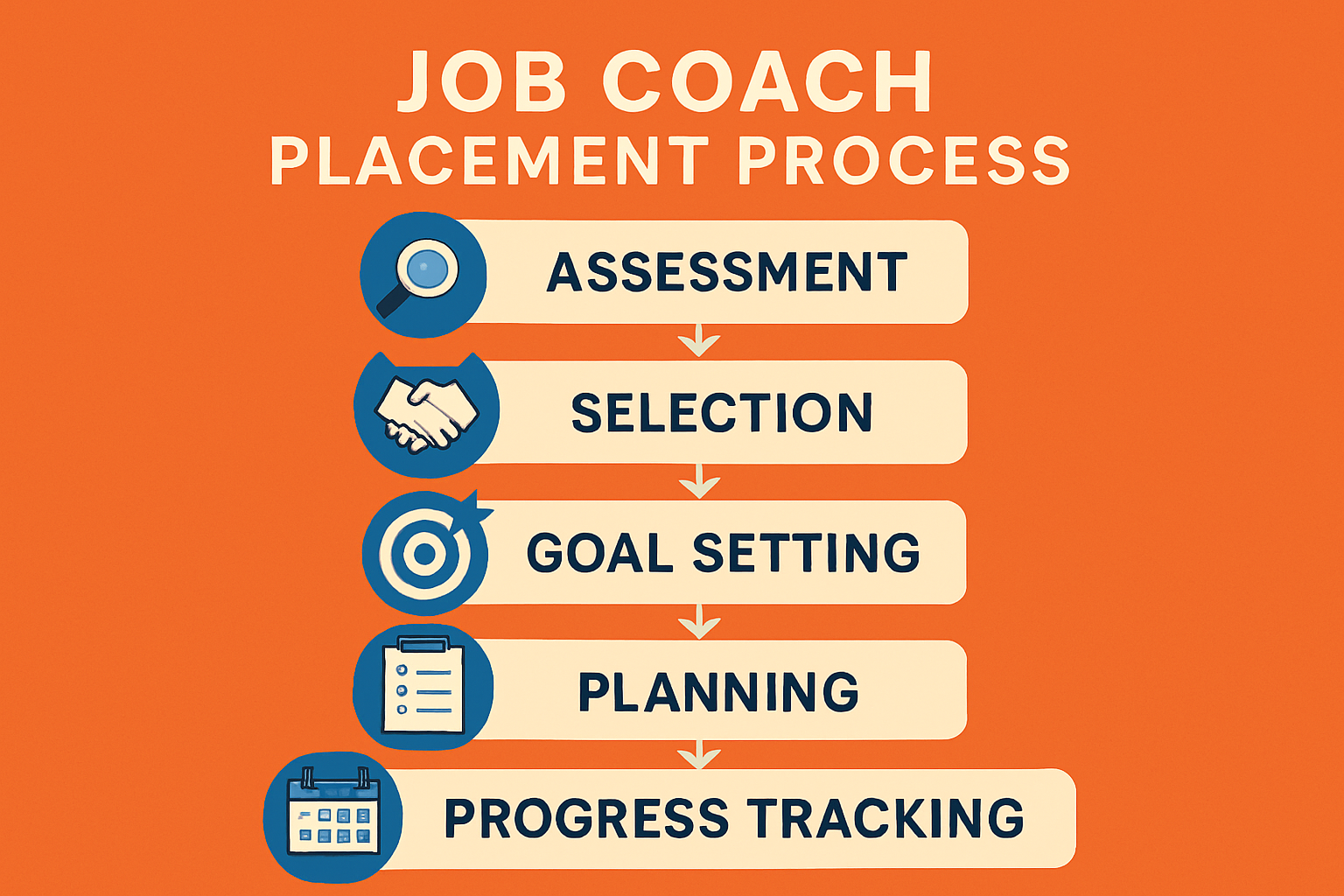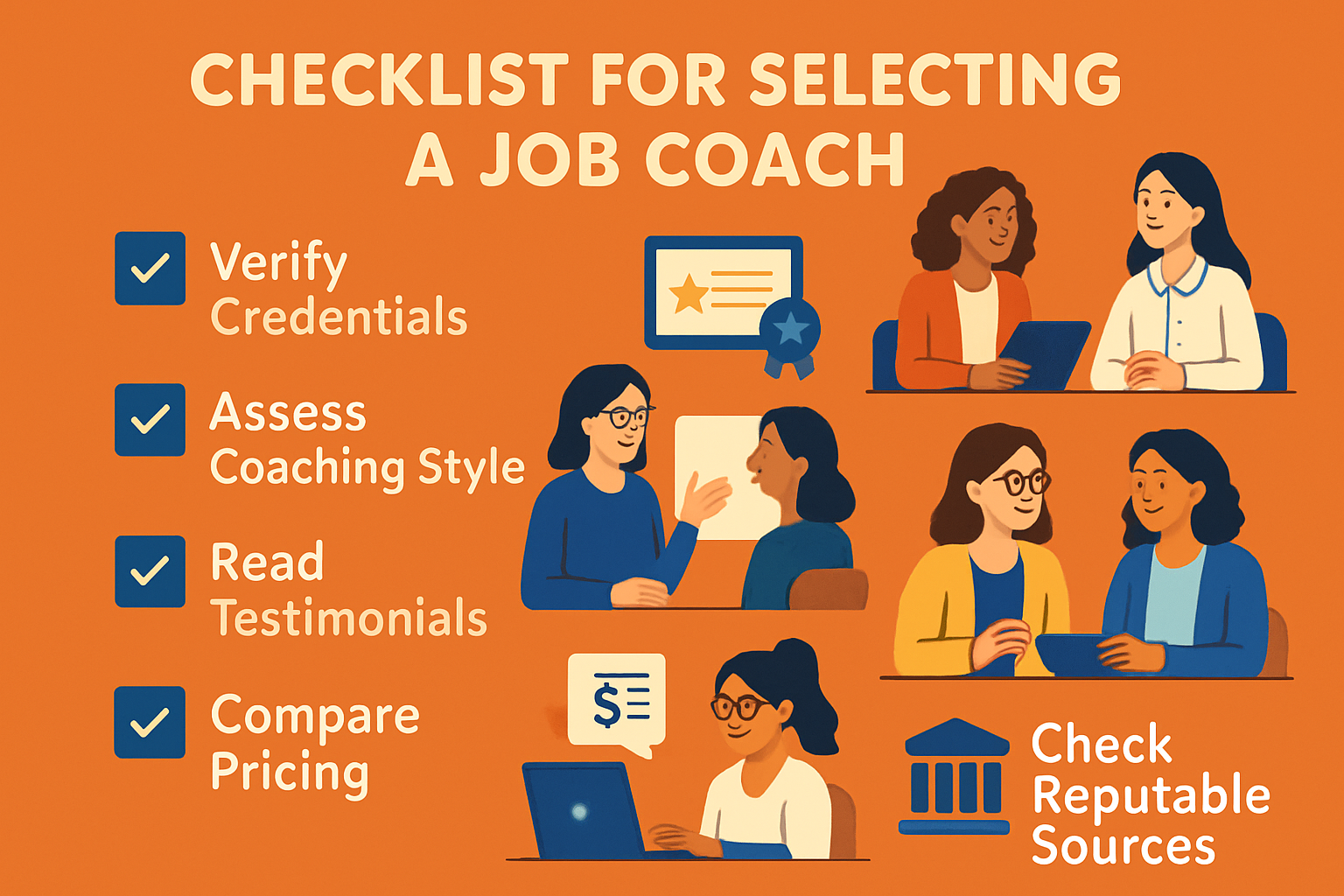Posted on August 14, 2025 by Don Markland
In 2025, the competition for great jobs is fiercer than ever, making job coach placement a powerful tool for job seekers at every stage. This guide breaks down job coach placement for beginners, showing you exactly how to find the right support and take charge of your career journey. You’ll learn what job coach placement really means, the benefits it brings, and how the process works from start to finish. We’ll cover how to choose the right coach, use coaching to fuel your growth, and what trends to watch for in the future. Ready to discover how job coach placement can unlock new career possibilities? Let’s dive in and take the first step together.Understanding Job Coach Placement
Unlocking the full potential of your job search starts with understanding what job coach placement truly means. In today’s rapidly changing world of work, job seekers are looking for more than just a resume review—they want strategic guidance that adapts to their unique career paths.What is Job Coach Placement?
Job coach placement is a specialized service where a trained professional partners with individuals to support their career development, job search, and successful integration into the workforce. Unlike traditional job placement services, which focus on matching candidates with open positions, job coach placement emphasizes personalized coaching, skill-building, and long-term success. The role of a job coach includes offering tailored advice, identifying strengths and weaknesses, and helping clients navigate the modern workforce. This approach is especially valuable for entry-level professionals and career changers who may need extra guidance to align their goals with current job market demands. By focusing on growth and adaptability, job coach placement helps individuals build confidence and skills for lasting career progress.Key Benefits of Job Coach Placement
Choosing job coach placement provides a range of valuable benefits for job seekers. Some of the most impactful advantages include:- Enhanced job search strategies and resume optimization
- Improved interview skills and increased confidence
- Personalized career planning and clear goal setting
- Higher job retention and satisfaction rates
Who Needs a Job Coach?
Job coach placement is especially beneficial for:- Recent graduates entering the workforce
- Career switchers seeking new opportunities
- Individuals with disabilities navigating workplace transitions
- People re-entering employment after a break
The Job Coach’s Role in 2025
As we look toward 2025, the expectations for job coach placement are evolving. More coaches are leveraging technology and offering remote sessions, making support accessible no matter where clients live. Soft skills—like adaptability, communication, and resilience—are becoming just as important as technical know-how. Top coaching organizations emphasize the need for coaches to integrate digital tools and stay current with labor market trends. With job coach placement, clients can expect a blend of human insight and innovative technology, preparing them for success in a digital-first job market.The Job Coach Placement Process: Step-by-Step
Embarking on your job coach placement journey can feel overwhelming at first. Breaking it down into clear, manageable steps makes the process approachable for beginners. Let’s walk through each phase, so you know exactly what to expect and how to maximize your results.
Step 1: Assessing Your Career Needs
The first step in job coach placement is self-assessment. Begin by reflecting on your strengths, areas for growth, and long-term career goals. Understanding yourself will help you articulate what you want from a job coach placement experience. Many coaches use established tools to guide this process. For example:- Myers-Briggs Type Indicator (MBTI)
- StrengthsFinder
- Holland Code assessments
Step 2: Researching and Selecting the Right Job Coach
Choosing the right coach is crucial in job coach placement. Start by identifying coaches with relevant credentials, experience, and a specialization that matches your field or needs. Look for industry certifications, such as ICF or NBHWC, and review client testimonials. Today, much of this research happens online. According to Online Coaching Industry Trends, the demand for virtual coaching is surging, making it easier to connect with top professionals regardless of location. Create a shortlist, then schedule introductory calls to gauge communication style and personal fit. Remember, job coach placement is a partnership—chemistry matters.Step 3: Initial Consultation and Goal Setting
Your first meeting in the job coach placement process sets the tone for your journey. During this initial session, expect open dialogue about your background, ambitions, and challenges. Together, you’ll set SMART goals:- Specific
- Measurable
- Achievable
- Relevant
- Time-bound
Step 4: Developing a Personalized Action Plan
With clear goals, your coach will help craft a tailored action plan. This is where job coach placement becomes highly individualized. Key components may include:- Creating a targeted job search strategy
- Optimizing your resume and LinkedIn profile
- Practicing mock interviews
- Building essential workplace skills
Step 5: Ongoing Support and Progress Tracking
Consistent support is the heart of job coach placement. Regular check-ins keep you on track and allow for adjustments as you progress. Your coach will:- Review recent applications and interviews
- Offer feedback and encouragement
- Help troubleshoot challenges
- Adjust strategies based on results
Step 6: Transitioning to Job Placement and Onboarding Support
The final stage of job coach placement involves hands-on support as you secure and start a new role. Your coach will guide you through applications, interview prep, and even negotiation. Once you land a job, onboarding can feel daunting. Here, job coach placement provides ongoing encouragement and advice, helping you navigate new environments with confidence. Research shows that job seekers with coaching are 2.7 times more likely to secure their desired roles, making this final support invaluable for long-term success.How to Choose the Best Job Coach for Your Needs
Choosing the right job coach placement can be transformative for your career journey. With so many options available, it’s crucial to know what to look for and which factors matter most. Let’s break down the key criteria, so you can confidently make the best choice for your unique needs.
Credentials and Qualifications to Look For
When considering job coach placement, start by checking for recognized credentials. Top certifications include ICF (International Coaching Federation) and NBHWC (National Board for Health & Wellness Coaching). These ensure your coach has received professional training and adheres to ethical standards. Industry-specific experience is another must. For example, a coach with a background in education may better support teachers transitioning careers. Watch for red flags, such as vague qualifications or promises that sound too good to be true. As the coaching industry evolves, look for coaches who stay current. Many now integrate technology and keep pace with trends, as highlighted in AI’s Impact on Coaching Industry. This adaptability can be a sign of a truly effective job coach placement.Assessing Coaching Styles and Specializations
Not all coaching approaches are alike. Some coaches use directive methods, giving clear, actionable advice. Others prefer a non-directive style, guiding you to find your own solutions. Reflect on your learning preference to determine which method fits you best. Specializations are also important in job coach placement. Some coaches focus on tech, healthcare, or executive roles. If you’re entering a niche field, seek someone with direct experience. Match their style and expertise to your goals for a smoother coaching journey. Here’s a quick comparison table:| Coaching Style | Best For |
|---|---|
| Directive | Beginners, clear steps |
| Non-directive | Self-driven learners |
Evaluating Success Rates and Testimonials
A strong job coach placement record is often reflected in client success stories. Look for coaches who provide clear, verifiable testimonials and case studies. Ask about their average placement rates and how they measure client progress. It’s smart to inquire about the types of roles their clients have landed. Are they similar to your dream job? Use real-world data to make your decision. For instance, research shows that coached job seekers often experience higher placement rates than those who go it alone. Questions to ask potential coaches:- What is your placement success rate?
- Can you share client testimonials relevant to my background?
- How do you track progress and outcomes?
Understanding Pricing, Packages, and ROI
Job coach placement services come in various pricing models. You might encounter hourly rates, bundled packages, or monthly retainers. As a beginner, it helps to understand what’s included in each option. Consider the return on investment (ROI). A higher upfront cost may be worth it if the coach has a proven track record. Ask for a sample breakdown of fees, and compare what different packages offer. Here’s an example:| Package Type | Price Range | Includes |
|---|---|---|
| Hourly | $75–$150/hr | Single sessions |
| Package | $500–$1500 | Multiple sessions |
| Retainer | $300+/month | Ongoing support |
Where to Find Reputable Job Coaches
Finding a trustworthy job coach placement provider starts with research. Use professional directories, such as the ICF website, and ask for referrals from your network. LinkedIn is a valuable platform for reading reviews and checking credentials. Industry-specific forums and associations often list vetted coaches. Decide if you prefer online or in-person sessions. Each has its advantages—virtual coaching offers flexibility, while face-to-face meetings may build rapport faster. To sum up, invest time in exploring multiple sources. The right job coach placement can be the catalyst that propels your career forward.Leveraging Job Coach Placement for Career Success
Unlocking the full benefits of job coach placement can be transformative for your career. Whether you’re just starting or aiming to make a significant shift, knowing how to maximize this support sets you apart. Let’s explore practical ways to build strong coaching relationships, make every session count, overcome obstacles, apply new insights, and measure your long-term growth.
Building a Strong Relationship with Your Coach
A successful job coach placement starts with open, honest communication. Set clear expectations from the beginning—discuss your goals, preferred feedback style, and any concerns you may have. Building rapport with your coach accelerates progress. Trust is crucial, so share your challenges and celebrate small wins together. For example, one beginner who regularly communicated openly with her coach saw her confidence and job prospects grow rapidly. Tips for strong relationships:- Schedule regular check-ins.
- Be transparent about your needs.
- Give and receive feedback constructively.
Maximizing the Value of Each Session
Preparation is key for productive job coach placement sessions. Come with questions, set a focused agenda, and track your action items. Between meetings, apply what you’ve learned and jot down insights or challenges to discuss next time. Many coaches now use technology to enhance sessions, from AI-powered tools for feedback to digital progress tracking. If you’re curious about how generative AI is changing coaching workflows, the AI Augmentation in Coaching study offers valuable insights. To get maximum value:- Review previous goals.
- Take notes during sessions.
- Follow up on action steps.
Overcoming Common Challenges in Job Coach Placement
Job searches can be long and sometimes discouraging. With job coach placement, you have support to navigate plateaus and setbacks. Coaches help you reframe failures as learning opportunities and keep you motivated. Common challenges:- Rejection from employers
- Feeling stuck in the process
- Loss of motivation
Integrating Coaching Insights into Daily Work Life
The benefits of job coach placement don’t end with landing a job. Apply new skills—like networking, communication, and time management—right away in your daily routine. Seek feedback from colleagues and supervisors to refine your approach. One beginner, after coaching, quickly advanced by applying interview techniques and soft skills at work. Ways to integrate coaching insights:- Set weekly improvement goals.
- Reflect on what’s working.
- Ask for input regularly.
Measuring Long-Term Impact and Career Growth
Tracking your progress after job coach placement is essential. Set clear metrics—such as promotions, new skills acquired, or job satisfaction scores—to measure success. Many individuals use coaching as a springboard for future development. According to the ICF Global Coaching Study, 70% of those with coaching report improved work performance. Simple ways to measure impact:| Metric | Before Coaching | After Coaching |
|---|---|---|
| Confidence Level | 5/10 | 8/10 |
| Interview Success Rate | 10% | 35% |
| Job Satisfaction | 6/10 | 9/10 |
